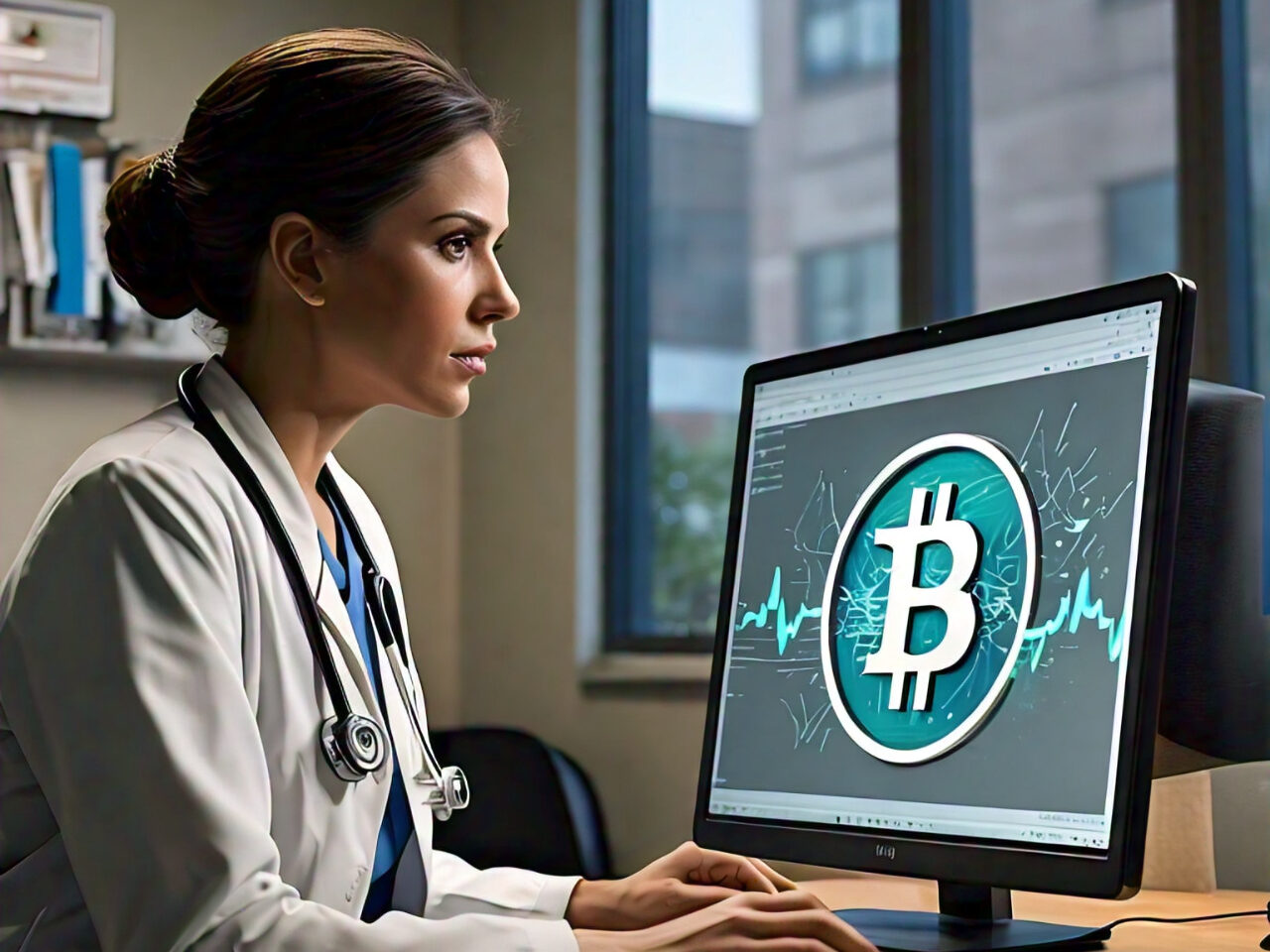
The healthcare industry is on the cusp of a revolution, and blockchain technology is at the forefront of this transformation. As a healthcare professional, it’s essential to stay updated on the latest developments in blockchain and its applications in healthcare. Blockchain’s decentralized, secure, and transparent nature makes it an ideal solution for addressing some of the industry’s most pressing challenges, from data management and security to clinical trials and patient care.
With the global healthcare market projected to reach $11.9 trillion by 2022, the potential for blockchain to drive innovation and improvement is vast. From streamlining clinical workflows to enabling personalized medicine, blockchain is poised to transform the healthcare landscape. In this article, we’ll explore the latest developments, applications, and innovations in blockchain healthcare, providing insights and expertise for professionals looking to stay ahead of the curve.
Key Statistics:
- 71% of healthcare organizations are already investing in blockchain technology (Source: Healthcare IT News)
- Blockchain in healthcare is projected to reach $5.6 billion by 2025 (Source: MarketsandMarkets)
- 60% of healthcare professionals believe blockchain will improve patient data security (Source: Healthcare Finance News)
Applications of Blockchain in Healthcare
Blockchain technology has numerous applications in healthcare, transforming the way data is managed, patients are cared for, and research is conducted. Some of the most significant applications include:
1. Electronic Health Records (EHRs) Management
Blockchain-based EHRs enable secure, decentralized, and tamper-proof storage of patient data. This allows for:
- Improved data accuracy and integrity
- Enhanced patient data security and privacy
- Streamlined data sharing and collaboration
2. Secure Data Storage and Sharing
Blockchain’s decentralized nature enables secure data storage and sharing, reducing the risk of data breaches and cyber attacks. This is particularly important for:
- Sensitive medical research data
- Personalized medicine and genomics data
- Clinical trial data
3. Clinical Trial Management Optimization
Blockchain can optimize clinical trial management by:
- Ensuring data integrity and transparency
- Streamlining patient recruitment and retention
- Facilitating real-time data tracking and analytics
4. Supply Chain Management for Pharmaceuticals and Medical Devices
Blockchain can improve supply chain management by:
- Ensuring authenticity and provenance of pharmaceuticals and medical devices
- Reducing counterfeiting and grey market activities
- Improving inventory management and logistics
5. Telemedicine and Remote Patient Monitoring
Blockchain-based telemedicine platforms enable secure and decentralized remote patient monitoring, improving:
- Patient engagement and empowerment
- Clinical outcomes and patient safety
- Data security and privacy
These applications demonstrate blockchain’s potential to transform healthcare, improving data management, patient care, and research. In the next section, we’ll explore how blockchain is enhancing patient care and outcomes.
Enhancing Patient Care with Blockchain
Blockchain technology has the potential to revolutionize patient care by improving data security, streamlining clinical workflows, and enabling personalized medicine. Some of the ways blockchain is enhancing patient care include:
1. Improved Patient Data Security
Blockchain’s decentralized and tamper-proof nature ensures that patient data is secure and protected from unauthorized access. This reduces the risk of:
- Data breaches and cyber attacks
- Medical identity theft
- Unauthorized data sharing
2. Enhanced Patient Engagement and Empowerment
Blockchain-based platforms enable patients to take control of their medical data, allowing them to:
- Access and manage their medical records
- Share data with healthcare providers and researchers
- Make informed decisions about their care
3. Streamlined Clinical Workflows
Blockchain can automate and streamline clinical workflows, reducing administrative burdens and improving:
- Clinical outcomes and patient safety
- Data accuracy and integrity
- Healthcare provider productivity
4. Personalized Medicine and Genomics
Blockchain-based platforms can enable personalized medicine by:
- Securely storing and managing genomic data
- Enabling data sharing and collaboration
- Facilitating targeted treatments and therapies
5. Remote Patient Monitoring and Telemedicine
Blockchain-based telemedicine platforms enable secure and decentralized remote patient monitoring, improving:
- Patient engagement and empowerment
- Clinical outcomes and patient safety
- Data security and privacy
By enhancing patient care, blockchain technology has the potential to improve health outcomes, reduce costs, and transform the healthcare industry.
Blockchain-based Solutions for Data Management

Blockchain-based solutions are revolutionizing data management in healthcare, enabling secure, decentralized, and tamper-proof storage and sharing of sensitive medical data. Some of the key benefits of blockchain-based solutions for data management include:
1. Secure Data Sharing and Collaboration
Blockchain-based solutions enable secure and decentralized data sharing and collaboration, reducing the risk of:
- Data breaches and cyber attacks
- Unauthorized data access and sharing
- Data tampering and manipulation
2. Data Standardization and Interoperability
Blockchain-based solutions enable data standardization and interoperability, facilitating:
- Seamless data sharing and integration
- Improved data accuracy and integrity
- Enhanced clinical decision-making
3. Real-time Data Tracking and Analytics
Blockchain-based solutions enable real-time data tracking and analytics, providing:
- Improved insights into patient outcomes and behavior
- Enhanced clinical decision-making and research
- Real-time monitoring and alerting for adverse events
4. Decentralized Data Storage and Management
Blockchain-based solutions enable decentralized data storage and management, reducing the risk of:
- Data loss and corruption
- Unauthorized data access and sharing
- Data tampering and manipulation
5. Compliance with Regulatory Requirements
Blockchain-based solutions enable compliance with regulatory requirements, such as:
- HIPAA and GDPR
- 21 CFR Part 11
- ICH GCP
By leveraging blockchain-based solutions for data management, healthcare organizations can improve data security, reduce costs, and enhance patient care.
Streamlining Clinical Trials with Blockchain
Blockchain technology has the potential to revolutionize clinical trials by improving data management, patient engagement, and regulatory compliance. Some of the ways blockchain is streamlining clinical trials include:
1. Patient Recruitment and Retention
Blockchain-based platforms enable secure and decentralized patient recruitment and retention, improving:
- Patient engagement and empowerment
- Data accuracy and integrity
- Clinical trial efficiency and effectiveness
2. Data Management and Sharing
Blockchain-based solutions enable secure and decentralized data management and sharing, reducing the risk of:
- Data breaches and cyber attacks
- Unauthorized data access and sharing
- Data tampering and manipulation
3. Regulatory Compliance and Auditing
Blockchain-based solutions enable real-time regulatory compliance and auditing, improving:
- Compliance with regulatory requirements
- Data transparency and traceability
- Clinical trial efficiency and effectiveness
4. Supply Chain Management
Blockchain-based solutions enable secure and decentralized supply chain management, improving:
- Drug authenticity and provenance
- Inventory management and logistics
- Clinical trial efficiency and effectiveness
5. Real-time Monitoring and Analytics
Blockchain-based solutions enable real-time monitoring and analytics, providing:
- Improved insights into patient outcomes and behavior
- Enhanced clinical decision-making and research
- Real-time monitoring and alerting for adverse events
By leveraging blockchain technology, clinical trials can be streamlined, improving efficiency, effectiveness, and patient outcomes.
Innovation and Research in Blockchain Healthcare
Blockchain technology is driving innovation and research in healthcare, enabling new discoveries, improving patient outcomes, and transforming the industry. Some of the key areas of innovation and research include:
1. Personalized Medicine and Genomics
Blockchain-based solutions enable secure and decentralized management of genomic data, facilitating:
- Personalized medicine and targeted therapies
- Genomic research and discovery
- Precision health and wellness
2. Artificial Intelligence and Machine Learning
Blockchain-based solutions enable secure and decentralized AI and ML model training and deployment, facilitating:
- Predictive analytics and decision support
- Clinical trial optimization and patient matching
- Disease diagnosis and treatment
3. Internet of Medical Things (IoMT)
Blockchain-based solutions enable secure and decentralized IoMT device management and data integration, facilitating:
- Remote patient monitoring and telemedicine
- Real-time data tracking and analytics
- Clinical decision support and alerting
4. Synthetic Data and Simulation
Blockchain-based solutions enable secure and decentralized synthetic data generation and simulation, facilitating:
- Clinical trial simulation and optimization
- Disease modeling and prediction
- Personalized medicine and treatment planning
5. Healthcare Data Marketplaces
Blockchain-based solutions enable secure and decentralized healthcare data marketplaces, facilitating:
- Data sharing and collaboration
- Research and discovery
- Patient empowerment and engagement
By driving innovation and research, blockchain technology is transforming the healthcare industry, improving patient outcomes, and enabling new discoveries.
Career Development and Blockchain in Healthcare

The blockchain is transforming the healthcare industry, and with it, new career opportunities are emerging. Healthcare professionals looking to advance their careers must consider how blockchain will impact their work and what skills and knowledge they need to succeed in this new landscape.
Emerging Roles and Skills
Blockchain is creating new job roles in healthcare, including:
- Blockchain Developer: Develops blockchain solutions for healthcare, such as patient record systems and research data management.
- Healthcare Data Analyst: Analyzes and interprets healthcare data using blockchain and machine learning technologies.
- Blockchain Security Specialist: Ensures the security and privacy of healthcare data in blockchain systems.
Upskilling and Reskilling
Healthcare professionals looking to advance their careers in blockchain must consider acquiring new skills and knowledge, including:
- Blockchain Fundamentals: Understanding blockchain concepts, such as blockchain, nodes, and cryptocurrencies.
- Smart Contract Development: Developing smart contracts to automate processes and improve efficiency in healthcare.
- Data Analytics: Analyzing and interpreting healthcare data using machine learning and data visualization tools.
Education and Training

There are various education and training opportunities in blockchain for healthcare, including:
- Online Courses: Online courses covering blockchain fundamentals and their application in healthcare.
- Certifications: Certifications demonstrating competence in blockchain and its application in healthcare.
- Master’s Programs: Master’s programs focusing on blockchain and its application in healthcare.
Career Pathways
Blockchain is creating new career pathways in healthcare, including:
- From Nurse to Blockchain Data Analyst: Utilizing nursing skills to analyze and interpret healthcare data in blockchain systems.
- From Doctor to Blockchain Developer: Utilizing medical knowledge to develop blockchain solutions that improve patient care.
By understanding the emerging roles, skills, and education required for blockchain in healthcare, professionals can position themselves for success in this exciting new field.
Conclusion
The integration of blockchain technology in healthcare is transforming the industry in profound ways, from enhancing patient data security to streamlining clinical trials. As we’ve explored in this article, blockchain has the potential to:
- Improve patient outcomes through secure and decentralized data management
- Enhance clinical trials through transparent and tamper-proof data sharing
- Streamline healthcare operations through automated and efficient processes
However, the adoption of blockchain in healthcare also presents challenges, such as:
- Regulatory frameworks that must be adapted to accommodate blockchain technology
- Scalability and interoperability issues that must be addressed
- Education and training needs for healthcare professionals to effectively utilize blockchain
Despite these challenges, the potential benefits of blockchain in healthcare are undeniable. As the technology continues to evolve and mature, we can expect to see even more innovative applications in the healthcare industry.
Future Outlook
The future of blockchain in healthcare is bright, with potential applications in:
- Personalized medicine and genomics
- Artificial intelligence and machine learning
- Internet of Medical Things (IoMT) and remote patient monitoring
As healthcare professionals, researchers, and industry leaders, it’s essential to stay informed and engaged with the latest developments in blockchain and healthcare.
Call to Action
Join the conversation and explore the vast potential of blockchain in healthcare. Share your thoughts, ideas, and experiences with the community, and let’s work together to shape the future of healthcare.






